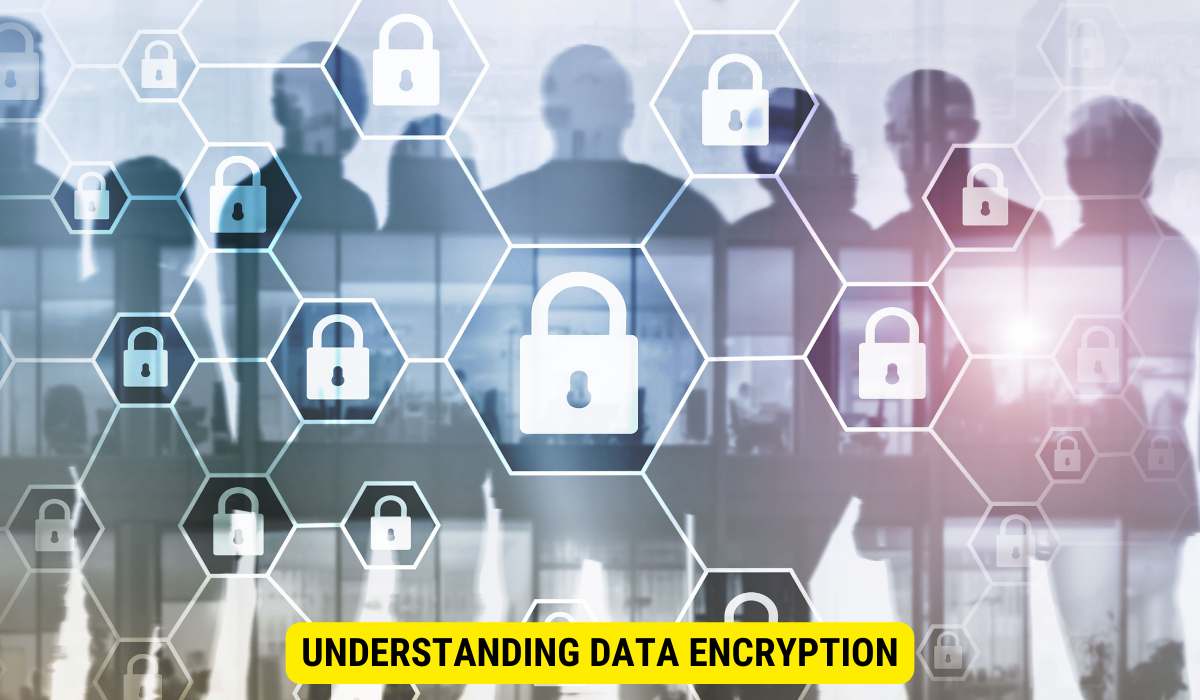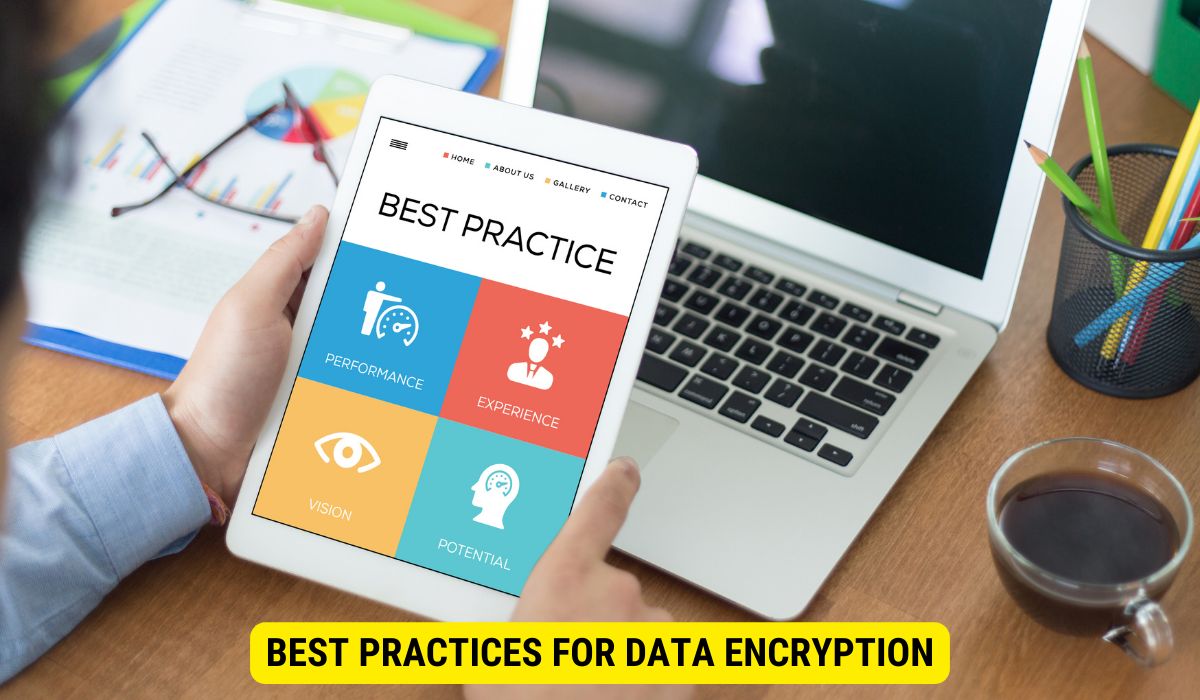Companies should encrypt data on personal devices. Encrypting data ensures that sensitive information is safeguarded, compliance with privacy regulations is maintained, and it protects against potential security threats and breaches.
Data encryption has become a crucial aspect of cybersecurity in today’s digital age. As individuals and businesses increasingly rely on personal devices for their work, the question arises: should companies encrypt data on these devices? I will explore the importance of data encryption, the risks associated with unencrypted data, the pros and cons of encrypting data on personal devices, and the legal and ethical considerations of implementing encryption in the workplace.
Understanding Data Encryption

Data encryption is a process that converts information into an unreadable format, known as ciphertext, using algorithms. Only authorized parties with the suitable decryption key can access the data. Encryption provides an extra layer of security, especially when sensitive information is stored or transmitted. It mitigates the risk of unauthorized access, theft, and tampering, safeguarding personal and business data.
When it comes to data encryption, there are several important concepts to understand. Let’s delve deeper into the basics of data encryption and explore its significance in the business world.
The Basics of Data Encryption
In its simplest form, data encryption operates on two main components: the key and the cipher. The symmetric or asymmetric key determines the encryption and decryption process. Symmetric key encryption customs the same key for encryption and decryption. In contrast, asymmetric key encryption employs a pair of mathematically related keys – a public key for encryption and a private key for decryption.
On the other hand, the cipher is the algorithm used in the encryption process. Advanced Encryption Standard (AES), RSA, and Blowfish are common examples. These ciphers ensure the encrypted data’s confidentiality, integrity, and authenticity.
When data undergoes encryption via a symmetric key algorithm, a single key serves both to encrypt and decrypt the information. This approach to encryption is frequently characterized by its speed and efficiency, rendering it well-suited for everyday applications. Conversely, asymmetric key encryption employs a pair of distinct keys—a public key and a private key. The public key is employed for data encryption, while the private key is reserved for decryption purposes. This methodology enhances security by safeguarding the confidentiality of the private key, which is never disclosed to others.
Encryption algorithms, such as AES, RSA, and Blowfish, play a crucial role in securing data. These algorithms use complex mathematical calculations to transform plaintext into ciphertext and vice versa. AES, for example, is widely recognized as a robust encryption standard and is used by governments and organizations worldwide to protect sensitive information.
Importance of Data Encryption in Business
For businesses, data encryption is vital for protecting sensitive info such as customer data, financial records, and trade secrets. Encryption safeguards against data breaches can lead to financial loss, reputational damage, and legal liability. By encrypting data on personal devices, companies can confirm that even if a device is lost or stolen, the data remains inaccessible to unauthorized individuals.
Furthermore, compliance with data protection regulations, such as the General Data Protection Regulation (GDPR) and the Health Insurance Portability and Accountability Act (HIPAA), requires organizations to implement appropriate security measures, often including data encryption. Failure to comply with these regulations puts businesses at risk of legal consequences and erodes customer trust.
In addition to protecting sensitive information, data encryption enables secure communication between businesses and their clients. Encryption ensures that data transmitted over networks, such as the Internet, remains confidential and cannot be intercepted or tampered with by malicious actors. This is particularly important for e-commerce transactions, online banking, and other digital interactions involving sensitive data exchange.
Moreover, data encryption can also provide a competitive advantage for businesses. Establishments can build trust with their customers and differentiate themselves from competitors by demonstrating a assurance to data security and privacy. In today’s digital landscape, where data breaches and cyber threats are prevalent, customers are increasingly concerned about the safety of their personal information. Implementing robust encryption measures can help businesses gain a competitive edge and attract customers.
In conclusion, data encryption is a critical aspect of modern-day cybersecurity. It ensures the confidentiality, integrity, and authenticity of sensitive info, protecting it from unauthorized access and potential threats. Whether safeguarding customer data, complying with regulations, or gaining a competitive advantage, data encryption is pivotal in securing the digital landscape.
The Risks of Unencrypted Data on Personal Devices
The use of personal devices for work purposes offers convenience and flexibility. However, it poses significant risks, especially when involving sensitive or confidential data. Let’s explore potential threats and vulnerabilities associated with unencrypted data on personal devices.
Potential Threats and Vulnerabilities
Unencrypted data on personal devices exposes businesses to various security vulnerabilities. For instance, if a device is lost or stolen, the unencrypted data can be easily accessed by anyone who possesses it. This puts the company’s sensitive information at risk and the personal data of clients or customers.
Moreover, unencrypted data can be intercepted during transmission, allowing cybercriminals to gain unauthorized access and potentially manipulate or exploit the information. This makes it essential for companies to adopt data encryption solutions to protect their data, regardless of where it resides.
Impact of Data Breach on Businesses

The consequences of a data breach can be overwhelming for businesses. Beyond the immediate financial losses associated with the incident, companies often face significant reputational damage, loss of customer trust, and legal ramifications. Additionally, data breaches can lead to regulatory penalties, which can additional compound the financial and operational impact on the affected organization. Data encryption measures can significantly reduce the likelihood and severity of these potential consequences.
The Pros and Cons of Encrypting Data on Personal Devices
While data encryption offers significant advantages in terms of security and privacy, it is important to consider the potential drawbacks and challenges related with encrypting data on personal devices.
Advantages of Encryption
One of the primary advantages of encrypting data is enhanced security. By converting data into ciphertext, encryption ensures that only authorized individuals can enter the information by using the appropriate decryption key. This provides peace of mind for businesses and employees when handling sensitive data on personal devices.
In addition to security benefits, encryption also contributes to regulatory compliance. Many industry-specific regulations require the implementation of encryption as a safeguard against data breaches and unauthorized access. Complying with these regulations protects the business and helps build trust with customers and stakeholders.
Possible Drawbacks and Challenges
Despite its benefits, a few challenges are associated with data encryption on personal devices. One potential drawback is the additional computational resources required to encrypt and decrypt data, which can impact device performance. This may concern individuals working with large datasets or resource-intensive applications.
Another challenge is the need for secure key management. Strong encryption keys must be generated and securely stored for encryption to be effective. Failure to properly manage encryption keys can undermine the security of the encrypted data. Organizations must establish robust key management practices when implementing encryption on personal devices.
Legal and Ethical Considerations of Data Encryption
In addition to the technical aspects, authorized and ethical considerations must be considered when discussing data encryption. Let’s explore the key points in this regard.
Privacy Laws and Regulations
Privacy laws and regulations govern personal data collection, storage, use, and disclosure. Many jurisdictions have specific requirements regarding data protection, which often include encryption as a recommended or mandatory security measure. Organizations must stay informed about the relevant regulations in their jurisdiction and ensure compliance to avoid legal consequences.
Ethical Implications of Data Encryption
From an ethical perspective, data encryption can be viewed as a means to protect the privacy and confidentiality of individuals. Encrypting data on personal devices ensures that personal info is secure and not vulnerable to unauthorized access or misuse. This aligns with the ethical responsibility of organizations to protect the information entrusted to them by their clients or customers.
Implementing Data Encryption in the Workplace
Implementing data encryption on personal devices within the workplace requires careful planning and consideration. Let’s explore some steps and best practices that organizations can follow.
Steps to Encrypt Data on Personal Devices
The first step is to identify the personal devices used within the organization and assess the risk associated with storing and processing data on these devices. Once the risk assessment is complete, appropriate encryption protocols and tools can be selected and deployed.
Organizations should also develop clear policies and guidelines on data encryption, including instructions on how employees should encrypt their devices and the relevant key management practices. This confirms consistency and uniformity throughout the organization.
Best Practices for Data Encryption

When implementing data encryption on personal devices, organizations should prioritize the following best practices:
- Use strong encryption algorithms and regularly update encryption protocols as new vulnerabilities are discovered.
- Implement multi-factor authentication to strengthen access controls to encrypted data.
- Regularly train workers on the importance of data encryption and provide guidance on effectively encrypting and protecting their personal devices.
- Maintain a robust key management system, including secure generation, storage, and rotation of encryption keys.
- Regularly monitor and audit encryption processes to ensure compliance and identify weaknesses or potential breaches.
By following these best practices, establishments can effectively mitigate the risks associated with unencrypted data on personal devices and ensure the security and privacy of their data.
Key Takeaways
- Data encryption converts information into an unreadable format, ensuring data security in storage and transmission.
- Businesses benefit from encryption as it protects sensitive data, supports regulatory compliance, and fosters stakeholder trust.
- Using personal devices for work introduces potential security risks; encryption mitigates the chances of unauthorized data access.
- While encryption enhances security, it’s vital for companies to also focus on strong encryption algorithms, robust key management systems, and employee training.
- Ethical and legal considerations emphasize the importance of encryption, aligning with the duty to protect data privacy and adhere to regulations.
FAQs
What is data encryption?
Data encryption converts information into an unreadable format using algorithms, ensuring only authorized parties with the decryption key can access the data.
Why is encryption important for businesses?
Encryption safeguards against data breaches, helps meet regulatory compliance, ensures data privacy, and protects business reputation and customer trust.
What’s the difference between symmetric and asymmetric key encryption?
Symmetric key encryption involves utilizing a single key for both the encryption and decryption processes. On the other hand, asymmetric key encryption employs a public key for encryption and a private key for decryption.
Are there challenges in encrypting data on personal devices?
Challenges include the potential impact on device performance, the need for secure key management, and ensuring employees follow encryption protocols.
Is encrypting data on personal devices ethically necessary?
From an ethical perspective, encrypting data protects individuals’ privacy and confidentiality, aligning with organizations’ responsibility to secure information.
Conclusion
In conclusion, the answer to whether companies should encrypt data on personal devices is a resounding yes. Data encryption is critical in safeguarding sensitive information, protecting businesses from potential threats, and complying with privacy regulations. While there may be challenges and considerations in implementing encryption on personal devices, the benefits outweigh the risks. By prioritizing security and adopting best practices, organizations can create a secure and resilient environment for their data.
